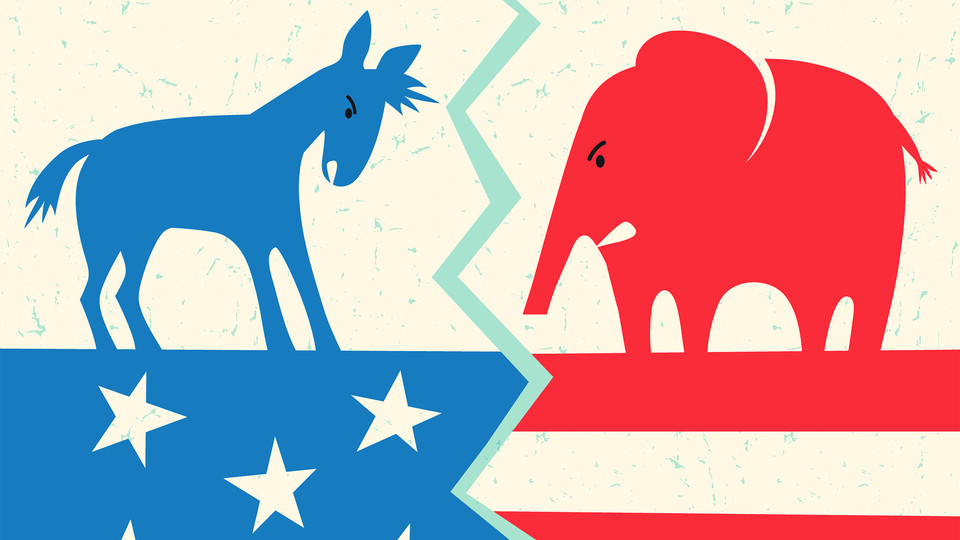Tap into any social media platform, turn on the television or cue up a podcast, and it is easy to find examples of hypocrisy or bad behavior in political discourse, and new research from University of Nebraska–Lincoln political scientists may explain why.
The findings from a large survey study, co-authored by Kyle Hull, Kevin Smith and Clarisse Warren, demonstrate the willingness of people to bend their morals — even behave unethically — when engaging in the political realm.

Results also suggest that hostility toward outgroups (i.e., opposing party) is the driving factor for the moral ambiguity exercised when respondents switch from the personal to the political arena.
And there is not just one guilty party.
“People, regardless of age or ideology, were more willing to engage in immoral behaviors and judgments if the behaviors were in the political realm,” said Hull, a visiting assistant professor in political science. “And a lot of it was just driven by genuine internal dislike of the ‘other’ side.”
The researchers developed a survey and engaged four different samples of adults, totaling 2,472 respondents. The survey included nonpolitical and political moral behavior scales and political and nonpolitical moral tolerance scales.

“Basically, we were taking the same person and asking them virtually the same questions,” said Smith, Leland J. and Dorothy H. Olson Professor of Political Science. “The only difference in the items is we changed ‘person’ to ‘politician.’ And that was enough to shift people’s moral judgment. It changes in a way that induces more flexibility in our moral assessments.”
That includes assessments of politicians’ bad behavior, as the co-authors found people are more morally tolerant of politicians they liked, similar to the behavior they were willing to tolerate from a friend.
In an increasingly polarized — and often toxic — political environment, the researchers said the results highlight the harm of outrage politics.
“I think there’s some reason for concern,” Hull said. “As long as there is some internalized dislike of the outgroup, there’s certainly a risk of behaviors that may be involved when people are willing to act less morally. Politics makes us do things that we just normally wouldn’t do and tolerate things we wouldn’t normally tolerate. It brings out, sometimes, the worst in us.
“The way some politicians and media speak about the other party fuels that fire in a way. The more we engage in pitting one party or the other as the bad guys, and the more you feel that way, the more you are willing to set your morals aside.”
The research builds on Smith’s work exploring how political engagement and ideology drive moral values and choices, not the other way around.
“If that’s true, then people will probably be using different standards for moral behavior or moral choices in their personal lives than they are in the political world,” Smith said. “And that’s what we found. It’s not like politics makes bastards of the left or the right, or the young or the old, or the rich or the poor. Politics seems to make bastards of us all.”






